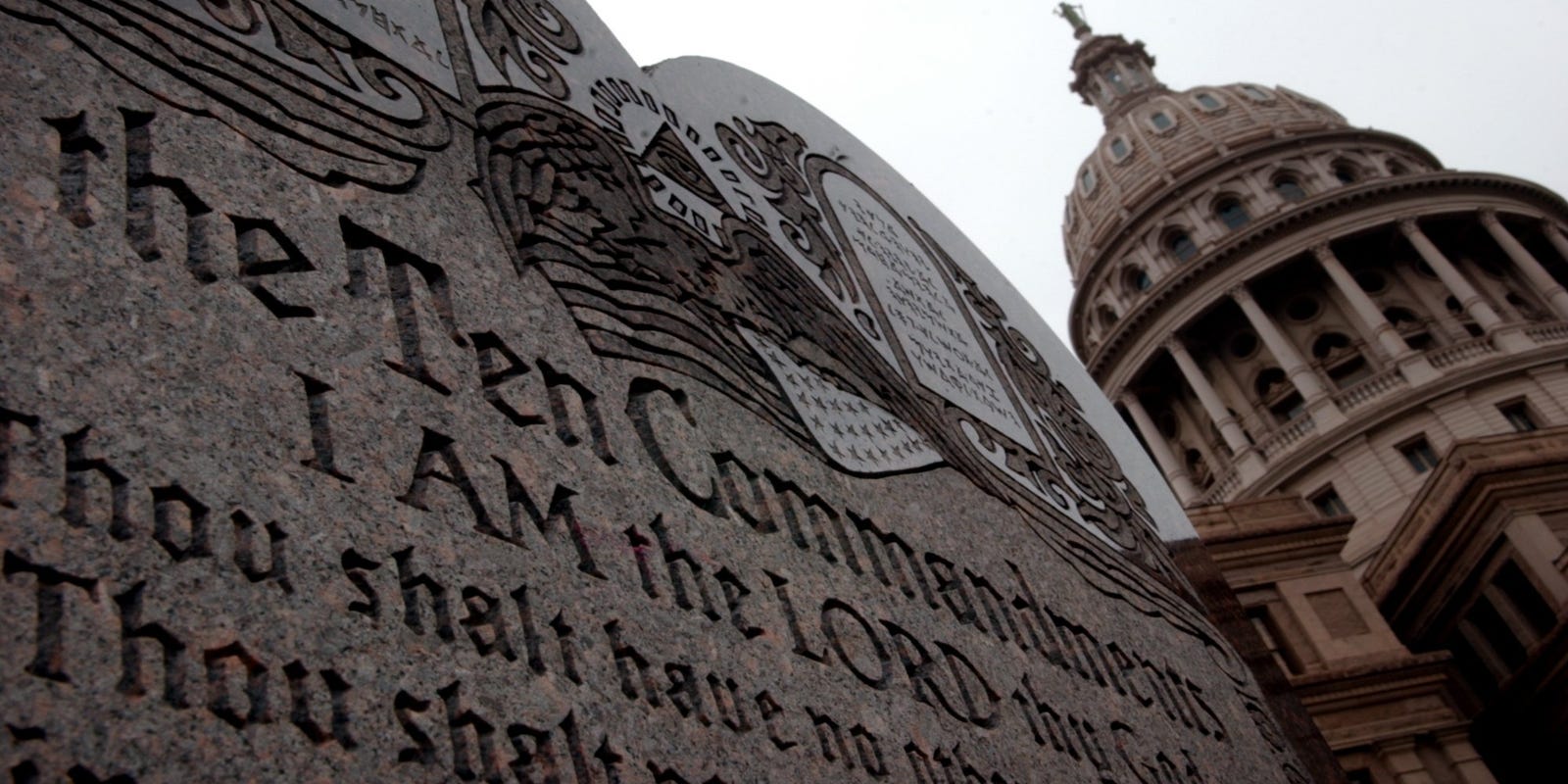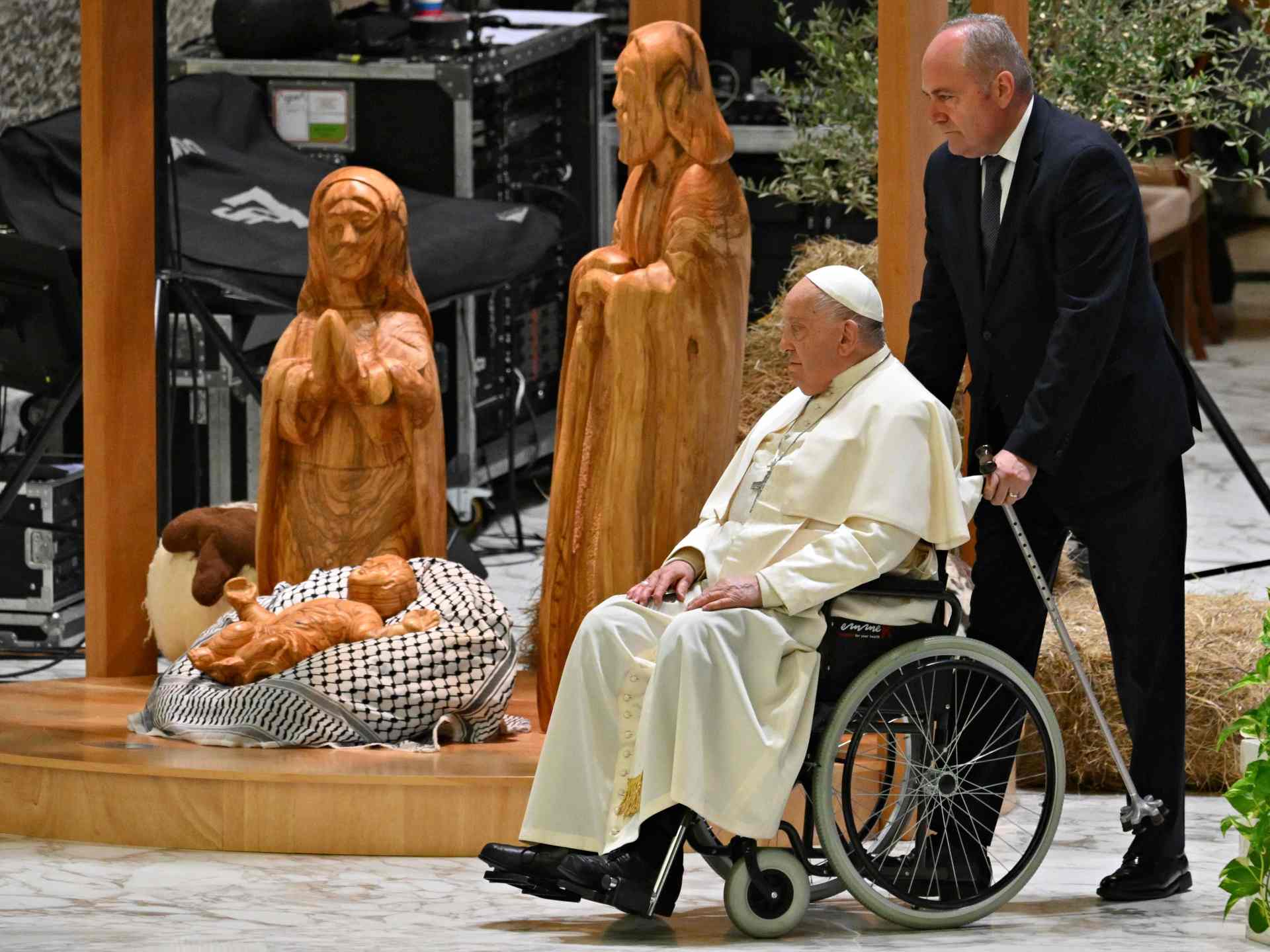Constitutional Clash: RSS Challenges Religion-Driven Reservation Policy
Religion
2025-03-23 17:52:00Content

In a powerful statement addressing reservation policies and historical perspectives, RSS General Secretary Dattatreya Hosabale strongly criticized the Karnataka government's recent decision to provide 4% reservation for Muslims. Emphasizing constitutional principles, Hosabale highlighted that the Indian Constitution explicitly prohibits reservations based on religious grounds.
The RSS leader passionately condemned the glorification of Mughal emperor Aurangzeb, drawing a sharp contrast between the emperor's historical actions and the noble cultural values championed by India's true heroes. His remarks underscored the importance of understanding historical narratives through a lens of cultural integrity and constitutional principles.
Hosabale's critique not only challenges the recent reservation policy but also calls for a more nuanced approach to understanding India's diverse social landscape. By questioning the religious-based reservation, he advocates for a more inclusive and equitable framework that respects the constitutional spirit of equality and merit.
The statement reflects the RSS's consistent stance on maintaining constitutional boundaries and promoting a unified national identity that transcends religious divisions. Hosabale's comments are likely to spark further debate on reservation policies and historical interpretations in contemporary Indian society.
Constitutional Crossroads: Unraveling the Reservation Debate and Cultural Narratives in Modern India
In the intricate tapestry of Indian political discourse, the intersection of constitutional principles, religious identity, and historical interpretation continues to spark intense national dialogue. The recent statements by RSS General Secretary Dattatreya Hosabale have reignited critical conversations about reservation policies, religious representation, and the nuanced understanding of India's complex cultural heritage.Challenging Perspectives on Reservation and Religious Identity
Constitutional Boundaries and Reservation Policies
The fundamental principles of India's constitutional framework have long been a subject of rigorous debate, particularly when it comes to reservation policies. Dattatreya Hosabale's recent critique of the Karnataka government's decision to implement a 4% reservation for Muslims highlights the delicate balance between social equity and constitutional integrity. The RSS leader's stance underscores a critical interpretation of constitutional provisions, arguing that religious-based reservations fundamentally contradict the secular principles enshrined in India's foundational legal document. The complexity of reservation policies extends far beyond mere statistical allocations. It represents a profound philosophical challenge to the nation's commitment to equality, meritocracy, and social justice. Hosabale's argument suggests that reservations should be grounded in socio-economic conditions rather than religious identity, a perspective that demands nuanced examination of existing affirmative action frameworks.Historical Narratives and Cultural Interpretation
The discourse surrounding historical figures like Aurangzeb reveals the ongoing tension between historical interpretation and contemporary cultural narratives. Hosabale's condemnation of Aurangzeb's legacy reflects a broader movement to reexamine historical narratives through a lens of cultural preservation and national identity. This critique goes beyond simple historical revisionism, touching on deeper questions about how societies remember, interpret, and learn from their complex past. The RSS leader's perspective challenges dominant historical narratives, suggesting a more critical approach to understanding historical figures and their impact on contemporary social dynamics.Ideological Perspectives and National Dialogue
The statements by Hosabale represent more than a mere political commentary; they embody a significant ideological perspective on national integration and cultural identity. The critique of religious-based reservations and historical interpretations reflects a broader philosophical approach to understanding India's social and political landscape. Such dialogues are crucial in a diverse and complex democracy like India. They challenge existing paradigms, encourage critical thinking, and provide alternative perspectives on fundamental social and political issues. The ongoing debate demonstrates the dynamic nature of India's democratic discourse, where different viewpoints can coexist and contribute to a more nuanced understanding of national identity.Constitutional Principles and Social Equity
The fundamental question raised by Hosabale's statements touches on the core of India's constitutional promise: how to balance social equity with constitutional principles. The critique of religion-based reservations suggests a need for a more comprehensive approach to addressing social disparities. This perspective calls for a holistic examination of reservation policies, moving beyond religious categorizations to focus on substantive socio-economic criteria. It challenges policymakers to develop more nuanced and inclusive approaches to social welfare and representation.Cultural Preservation and Historical Understanding
The critique of historical narratives, particularly regarding figures like Aurangzeb, represents a broader movement to recontextualize historical understanding. It suggests a more critical approach to cultural preservation, one that acknowledges complexity while maintaining a commitment to core cultural values. This approach invites a more sophisticated dialogue about historical interpretation, challenging simplistic narratives and encouraging a more nuanced understanding of cultural and historical dynamics.RELATED NEWS
Religion

Global Religious Freedom Stalls: New Report Reveals Alarming Standstill
2025-03-26 12:23:29
Religion

Faith, Funding, and Classrooms: The Charter School Controversy Brewing Across America
2025-03-10 14:30:00
Religion

Texas Senate's Bold Move: Religious Displays Set to Transform School Landscapes
2025-03-19 10:15:33





